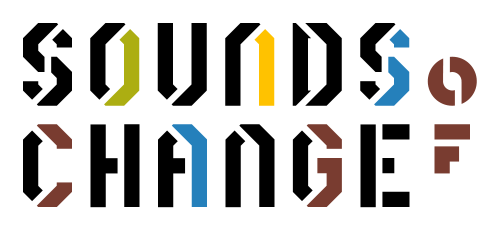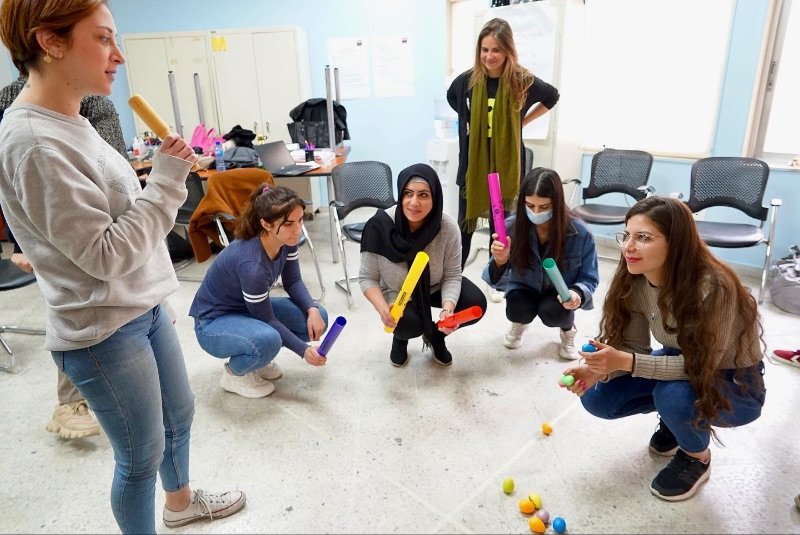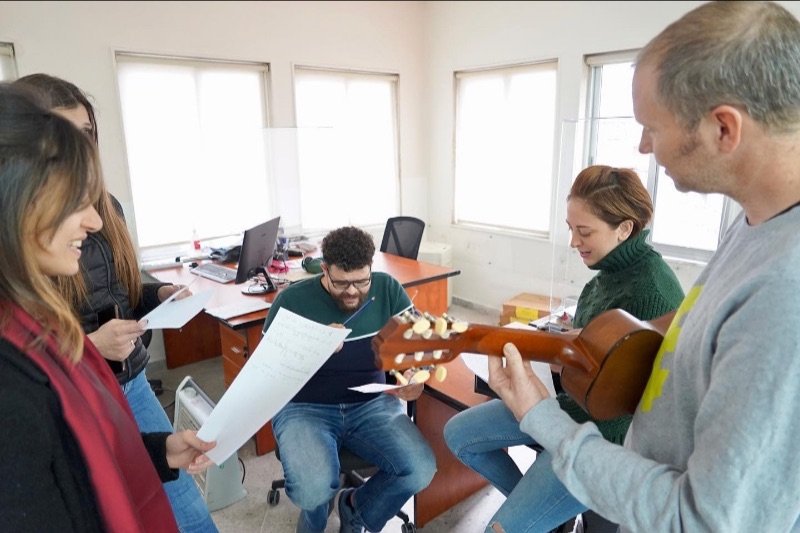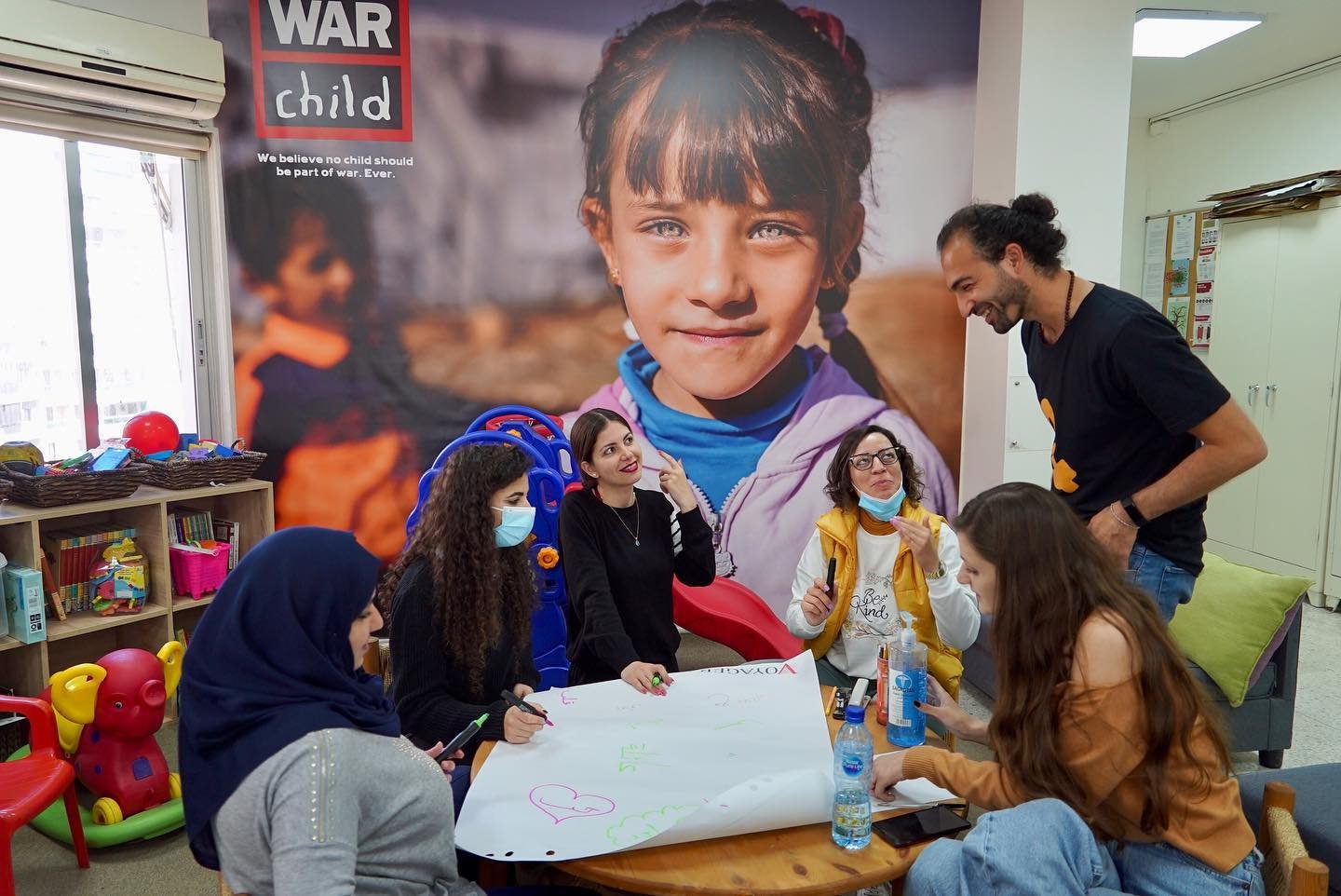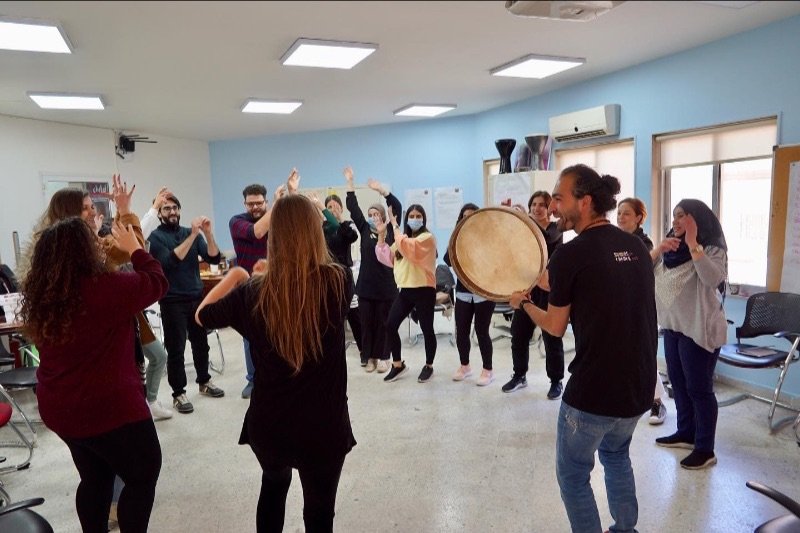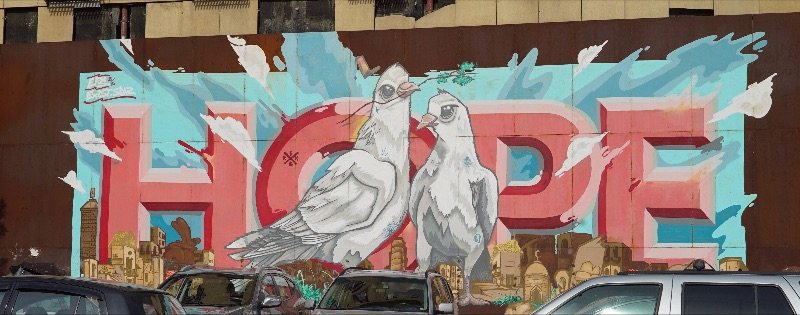Sounds of Change & War Child Lebanon
In Beirut we worked with the team at War Child Lebanon. We facilitated five days of training with a beautiful, diverse group of War Child staff members who are working in different departments of Psycho Social Support (PSS), Education, Child Protection, Case Management, Research & Inclusion.
We worked on various musical activities (tools, games and exercises) and discussed the possible implementation of these into existing PPS programs and educational programs. We also composed new interactive songs for children together.
Sounds of Change trainer Sander van Goor shared the Safe & Sound approach; a music therapy intervention that he developed and which we integrate into our work with Sounds of Change. Hashem Kabreet facilitated beautiful conversation and improvisation sessions using simple musical instruments. Loes van Hapert liberated the voices of the participants through different vocal techniques and exercises.
As part of the training, the participants composed their own songs based upon their personal stories of resilience. It led to a powerful collaborative song that united the whole team in a creative way. In the link below, you can watch and listen to the video:
We are looking forward to developing our collaboration with War Child because together we can make a difference!
It had been two years since we were last in Lebanon and since then much has changed. As you may have read in the news, there was a major explosion in the port of Beirut in August 2020. This is considered the largest non-nuclear explosion of the 21st century, killing at least 200 people, injuring more than 6500 and causing widespread damage throughout the city. The damage was still clearly visible where we were staying.
In addition, Lebanon is facing one of the worst economic crises in its history, with far-reaching consequences for healthcare, education and telecommunications. Firstly there is little electricity available. For example there are daily six-hour electric power-cuts across the entire country. There is a scarcity of fuel, tap water is still undrinkable and roads are covered in large unrepairable potholes. The Lebanese currency is practically worthless and 80% of the population lives below the poverty line. The main cause of all of this is corruption and mismanagement.
Hashem Kabreet lived in Beirut and this is what he wrote about our visit to Lebanon and his experience of training with us:
"The last training session in Lebanon was intense and very special to me. Full of strong, mixed emotions.
Almost four years after leaving Lebanon, I’m grateful that I got the chance to return.
I lived, worked, played and studied in Lebanon for five years and when I arrived this time, it immediately felt like home and I felt welcomed by the team of participants.
I could easily connect with them, sharing my stories, experiences and music as if we had known each others for years. We we able to hold fantastic, deep conversations and made amazing music together through creative processes.
It felt great and nostalgic to reconnect to that part of me and that part of the world. However, I was also walking the streets of Beirut with pain in my heart and tears in my eyes. The city and its people are devastated and so tired.
The situation has always been challenging for Lebanon, and the Lebanese, Syrians and Palestinians who still live there. But now (and especially after the explosion in the port) the situation has reached a new low compared to the difficulties faced four years ago which now look like the 'good old days.'
I feel a heavy sadness - disappointment, anger and tiredness - due to the unjust situation and unknown future these people face. Due to a lack of gas, electricity and other fundamental resources the streets are dark at night. Political corruption and an economical crisis add to the challenging situation that Lebanon faces.
But above all I was again amazed at the unbelievable resilience and determination of the local people to continue living. To find ways and moments to celebrate life and each other."
